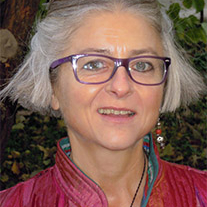Pollinator protection may not remain a privilege of rich countries
Published on: May 14, 2020, Submitted by Sara Jani on: May 9, 2020
In February 2020, Stefanie Christmann presented some parts of the IKI-pollinator project and the Farming with Alternative Pollinators (FAP) approach at the World Biodiversity Forum in Davos. Afterwards, the editor of the reputed journal Nature Ecology & Evolution invited her for a World View article to share with a larger audience.
These are the current members of the Coalition of the willing on pollinators. The second step, putting into force a national strategy plan for pollinator protection, is still huge hurdle for low- and middle-income countries.
Photo credit : Promote Pollinators, https://promotepollinators.org/members/
Currently, pollinator research focuses on plant-pollinator networks to a very high extent. Pollinator protection schemes are currently rare and expensive, as they require funds to pay farmers for land-sparing protection measures like wildflower strips. However, pollinator protection cannot remain a priviledge of high-income countries.
The new article highlights the importance of protecting pollinators also in low- and middle-income countries. This requires address the interests of farmers and political stakeholders. Protection in these countries should be based on their interests, e.g. earn more, avoid environmental degradation, support rural environment. The article focuses on the three steps of argumentation: explain (1) impacts of pollinator loss and the worst case scenario, (2) which kind of low-cost activities – like Farming with Alternative Pollinators (FAP) - can prevent such deterioration, main elements of a National Strategy and Action Plan for pollinator protection, (3) the cross-cutting benefits for other Sustainable Development Goals.
Low- and middle-income countries cannot afford the luxury of land-sparing and payments for strips of weeds. In low- and middle-income countries pollinator protection in the niche of nature conservation is not affordable. These countries need different concepts. By better communicating impacts of pollinator loss and the cross-cutting advantages of pollinator protection, people can understand that pollinator protection is a core task of sustainable society – similar as education and health care – and same as these core tasks it is the basis of longterm prosperity.
Acknowledgement
IKI



